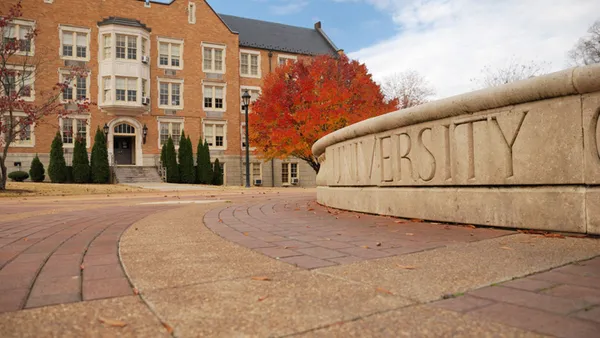State lawmakers could put the University of Idaho's planned acquisition of the University of Phoenix at “grave risk” if they file a lawsuit against the deal, Kurt Liebich, a member of the state’s education board, said during a legislative hearing Thursday.
Last May, the Idaho State Board of Education approved the state university's request to set up a nonprofit corporation to acquire the University of Phoenix for $550 million. At the time, board members said the acquisition would enable the state to expand higher education access and help it grapple with a declining pool of traditional college-age students.
C. Scott Green, president of the University of Idaho, echoed those arguments before state lawmakers Thursday.
“Phoenix’s online learning modality creates greater access to higher education for Idaho’s rural and time-bound students,” Green said. “Idaho students will have more choice, more educational pathways.”
But some legislators contend they haven’t been involved enough in the deal. They are mulling a resolution that would allow the Legislature’s leaders to take legal action against the transaction, as well as urge the state’s education board to reconsider its approval.
The pushback comes as University of Idaho officials and the state’s education board are aiming to close the deal this spring. The next step calls for the newly created nonprofit corporation, Four Three Education, to issue $685 million in bonds to finance the transaction.
However, a lawsuit from the Legislature could imperil this key step.
“It would be very difficult for us to place bonds with a legal threat like that out there,” Liebich told members of the House’s State Affairs Committee. Liebich argued that a lawsuit could endanger the transaction altogether.
An attorney for the Legislature last week issued a 10-page letter that contended the education board doesn’t have the power to pursue the University of Phoenix acquisition as structured. Kent Nelson, special counsel to the University of Idaho, pushed back on those findings Thursday, saying the board does have constitutional authority for the transaction.
Liebich also defended the deal before the lawmakers and stressed that the state must make moves now to address looming demographic challenges.
Colleges nationwide are bracing for the so-called demographic cliff — an expected drop in the number of high school graduates due to declining birth rates during the Great Recession.
“What you’re going to see across the country are hundreds and hundreds of higher ed institutions going out of business here over the next 10 years because of the change in demographics,” Liebich said. “If we are not forward-thinking and innovative, those pressures will be here in Idaho as well.”
The State Affairs Committee plans to continue its hearing Friday on the University of Phoenix deal.















